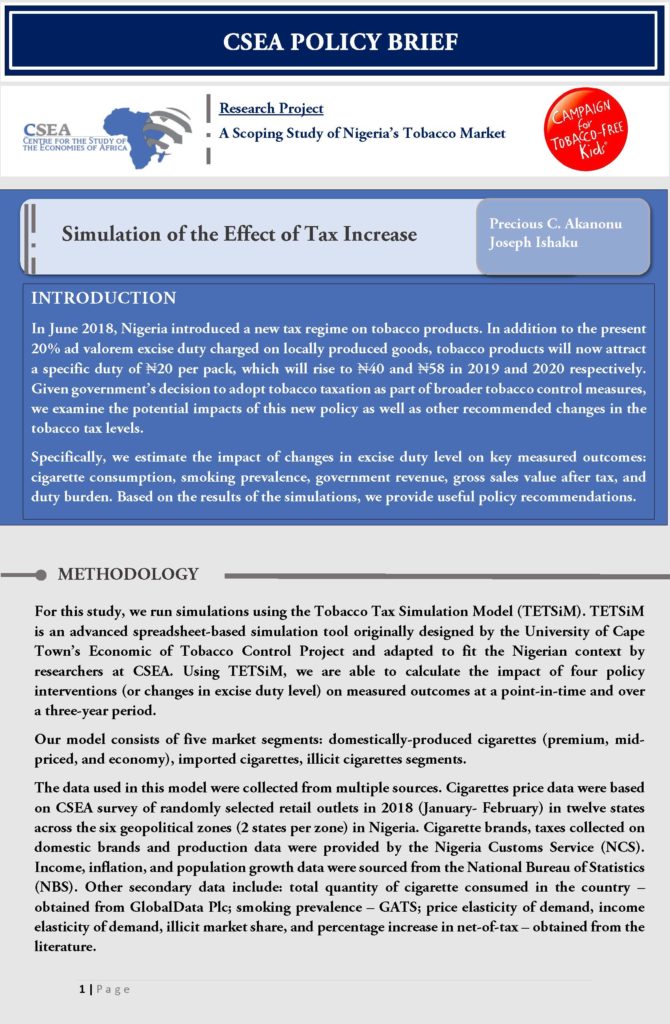In June 2018, Nigeria introduced a new tax regime on tobacco products. In addition to the present 20% ad valorem excise duty charged on locally produced goods, tobacco products will now attract a specific duty of ₦20 per pack, which will rise to ₦40 and ₦58 in 2019 and 2020 respectively. Given government’s decision to adopt tobacco taxation as part of broader tobacco control measures, we examine the potential impacts of this new policy as well as other recommended changes in the tobacco tax levels.
Policy Brief & Alerts

January 25, 2019
Simulation of the Effect of Tax Increase
In June 2018, Nigeria introduced a new tax regime on tobacco products. In addition to the present 20% ad valorem excise duty charged on locally produced goods, tobacco products will now attract a specific duty of ₦20 per pack, which will rise to ₦40 and ₦58 in 2019 and 2020 respectively. Given government’s decision to […]
Read →
Related
Nigeria Economic Update (Issue 37)
OPEC Monthly oil report reveals that Nigeria
recorded the highest month-on-month increase in crude oil production among the
OPEC member countries in August 2017. Specifically, at an increasing rate of 8
percent, domestic oil production rose to pre-2016 level of 1.86 million barrels
per day in August 2017. With ongoing repairs in the sector, oil
production could get to 2.2 million barrels per day in the near term, albeit
the prior voluntary agreement to cap production at 1.8 million barrels per day.
Going forward, there is need to address poor planning and policy
inconsistencies in the sector, in order to ensure the influx of investors who
have channeled their investments to other African countries due to laxity in
policies in the sector.
Nigeria Economic Review
This report provides a concise and timely analytical
overview of key aspects of the Nigerian economy. The report is an attempt to
track the developments in the relevant aspects of the economy over a
three-month period. It provides valuable insights into potential drivers of the
economic trends and outlines expectations for subsequent quarters of the year.
The areas of focus are Global Economic Performance, Domestic Economic
Performance, External Sector Performance, and Sectoral Performance.
Nigeria Economic Update (Issue 6)
The
nations foreign reserves have been on a steady rise. In the review week,
reserves increased by $415.2 million from $28.3 billion on February 3, 2017 to
$28.8 billion on February 10, 2017. The increase is likely the
reflection of a sustained crude oil revenue complemented by moderating global
crude oil price and increasing domestic production. This should help strengthen
the ability of the CBN to foster forex liquidity, and thus help maintain
stability in the domestic forex market. If sustained, it should also help
improve the value of the naira overtime. Hence, the government should implement
proactive and effective policy strategies to, not only, sustain improvements in
oil revenue but also boost non-oil revenue.


